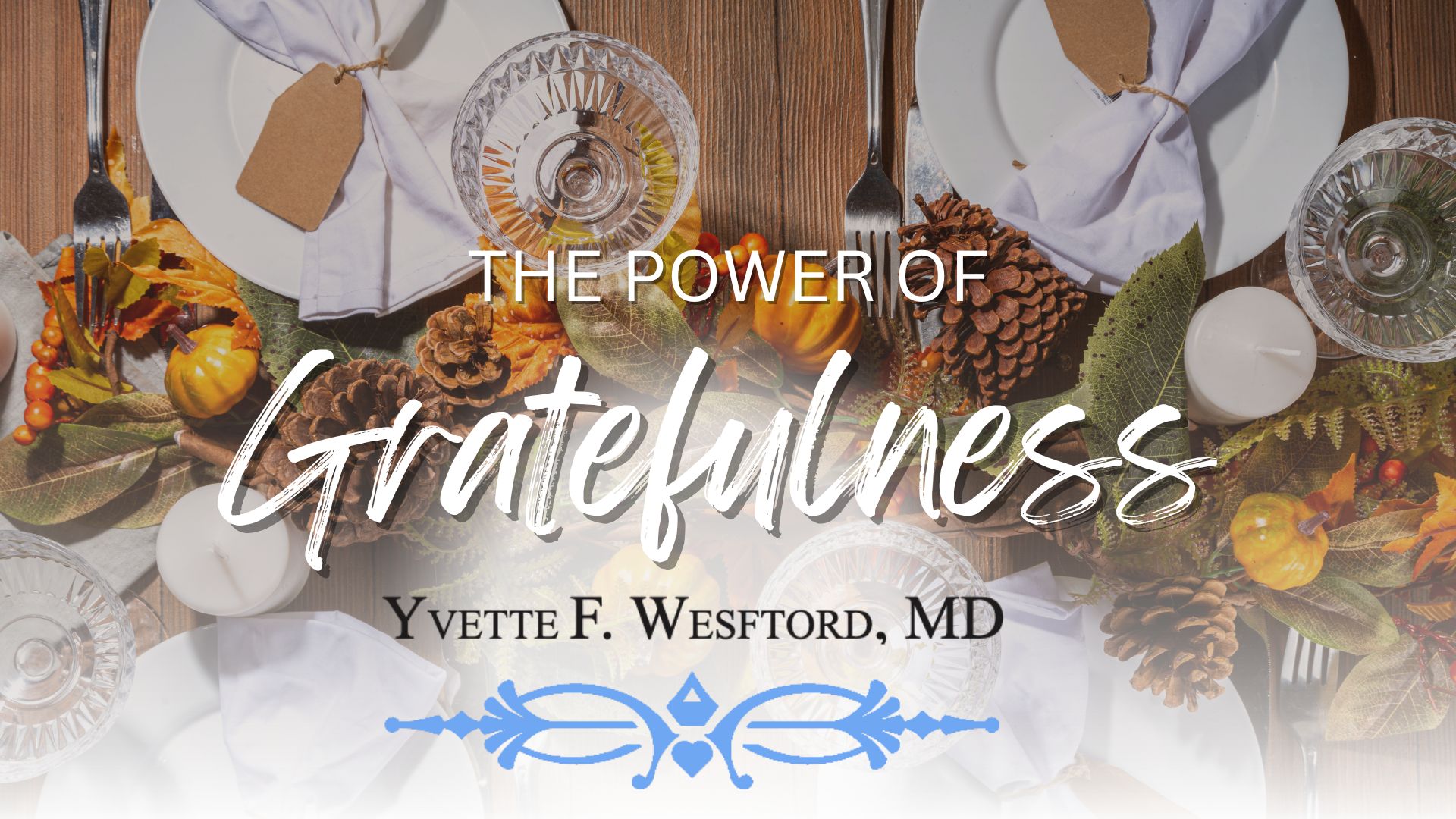The Health Benefits of Gratefulness and Mindfulness During Thanksgiving
The health benefits of gratitude and mindfulness are abundant as Thanksgiving approaches. It’s easy to get caught up in the flurry of holiday activities, from preparing a big meal to planning family gatherings. Amidst the busyness, it’s essential to reflect on gratefulness and mindfulness, which can significantly impact our mental and physical well-being. We want to remind patients of the power of these practices, not only during the holidays but throughout the year.
What Is Gratefulness and Mindfulness?
Gratefulness, at its core, is the act of acknowledging and appreciating the good things in your life. It could be as simple as feeling thankful for a loved one’s smile, a warm meal, or even the beauty of a crisp autumn morning. It involves actively looking for the positives, even in the most challenging times.
Mindfulness, on the other hand, refers to being fully present and engaged in the moment. It involves paying attention to your thoughts, feelings, and surroundings without judgment. Whether you’re eating dinner, spending time with family, or walking outside, mindfulness encourages you to focus on the here and now instead of getting lost in thoughts about the past or future.
The Health Benefits of Gratefulness and Mindfulness
Practicing both gratefulness and mindfulness can improve your mental health in profound ways. Research shows that people who regularly practice gratitude tend to have lower levels of stress, better mood regulation, and a more positive outlook on life. Gratefulness encourages a mindset shift from what’s lacking to appreciating what is present, fostering emotional resilience.
Mindfulness offers similar benefits, particularly when it comes to reducing anxiety and depression. By being mindful, you can prevent yourself from becoming overwhelmed by racing thoughts and worries. Mindfulness helps regulate emotions, improve focus, and create a sense of calm even in stressful situations.
For physical health, studies suggest that practicing gratitude can lower blood pressure, strengthen the immune system, and improve sleep. Mindfulness has been shown to reduce chronic pain, improve digestion, and support heart health by lowering cortisol levels, which are linked to stress. Together, these practices offer a holistic way to improve your overall well-being.
A Checklist for Practicing Gratefulness and Mindfulness This Thanksgiving
Implementing these practices doesn’t have to be complicated. Here’s a simple checklist to help you practice gratefulness and mindfulness during the holiday season:
- Start a Gratitude Journal
- Each morning or evening, write down three things you’re grateful for. These don’t have to be big or life-changing. You might write down, “I’m grateful for the time spent with my family,” or “I’m thankful for the food I have today.” This practice shifts your focus to positivity and helps combat negative thinking patterns.
- Practice Mindful Eating
- During Thanksgiving dinner, take a moment to savor each bite of your meal. Focus on the flavors, textures, and aromas of the food. Eating mindfully can help you enjoy your meal more fully, prevent overeating, and bring you into the present moment.
- Take a Mindful Walk
- After your Thanksgiving meal, take a short walk outside. As you walk, pay attention to your surroundings—the sound of leaves rustling, the coolness of the air, or the warmth of the sun. Engaging with nature mindfully can reduce stress and help you feel more grounded.
- Gratitude Conversations
- During family gatherings, try starting conversations about what others are thankful for. Expressing gratitude aloud not only strengthens bonds with loved ones but also reinforces positive emotions.
- Breathe and Reflect
- If you start to feel overwhelmed by the holiday preparations or emotions, take a few minutes to sit quietly. Close your eyes and focus on your breathing. Deep, slow breaths can calm your nervous system. As you breathe, reflect on one thing you’re grateful for in that moment. This practice of mindfulness can quickly bring a sense of peace and clarity.
Cultivating Gratefulness and Mindfulness Beyond Thanksgiving
While Thanksgiving provides a natural opportunity to practice gratitude and mindfulness, these habits can be cultivated year-round for lasting mental and physical health benefits. As a family practice doctor, I often encourage my patients to integrate small, daily moments of mindfulness into their routine. Whether it’s a short pause in your day to notice something beautiful or a quick journaling session in the evening, consistent practice can make a significant difference.
In times of stress or uncertainty, it’s easy to forget the power of being present and appreciative. But by committing to these practices, we can enhance our well-being and build stronger relationships with ourselves and others. Let this Thanksgiving be the beginning of a journey toward a more mindful and grateful way of living.
Thank you for reading, and I hope this Thanksgiving brings peace, joy, and mindfulness to you and your family. If you ever feel overwhelmed or need guidance on mental health, please don’t hesitate to reach out to our practice. We’re here to support you through all seasons of life.


